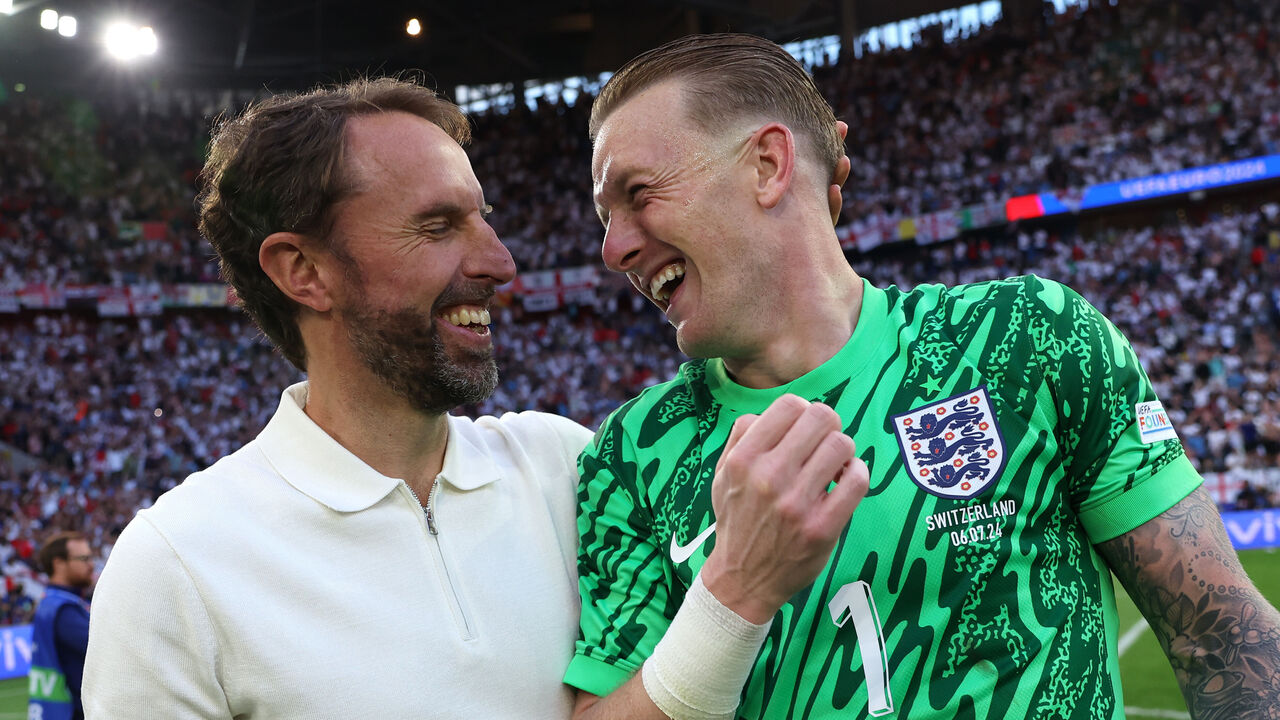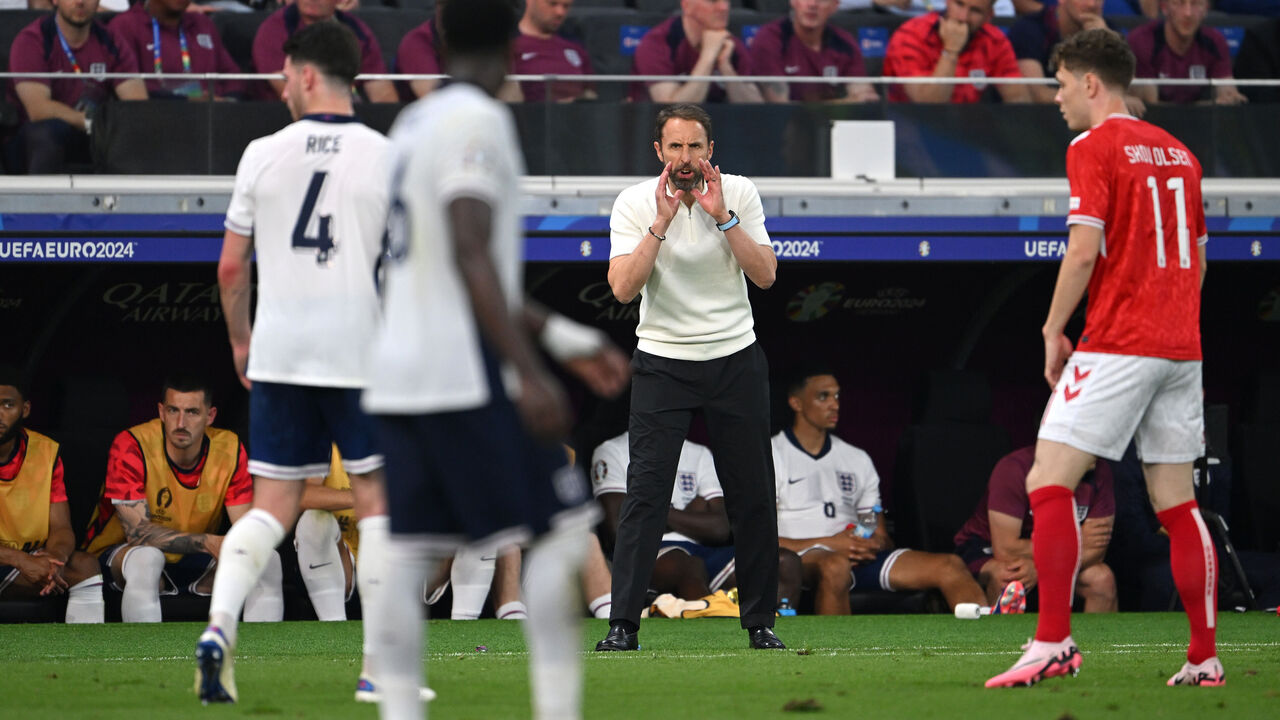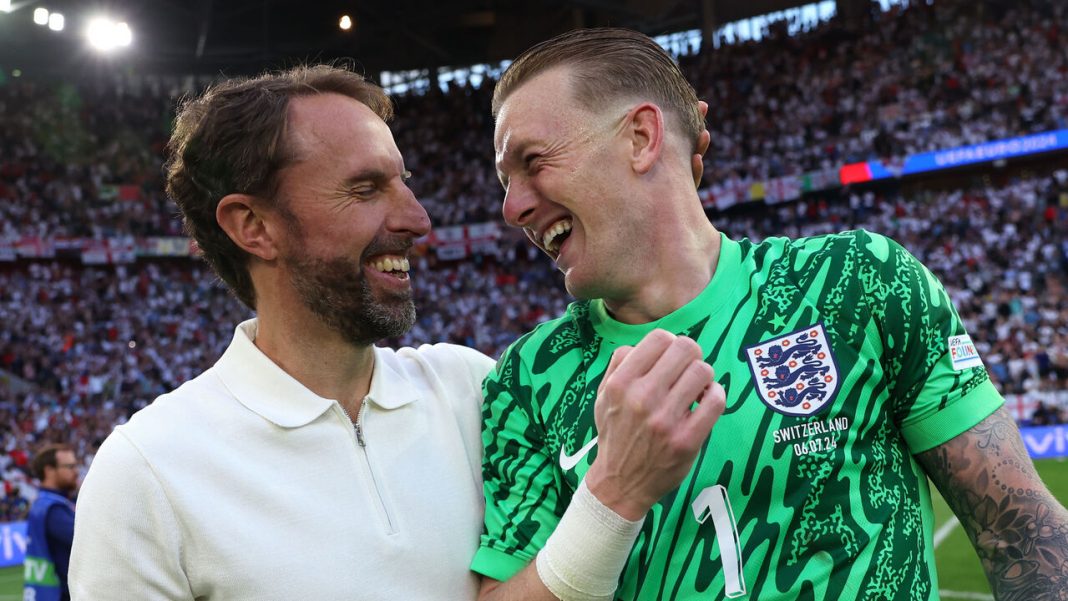One of the greatest things a coach can do is leave their team in a better place than they found it. Gareth Southgate did that. Even in the aftermath of yet another final lost, there’s a lot of gratitude. The English thank Southgate as he walks away from the job he held for eight years because the journey was worthwhile. He leaves after a job well done and departs – most improbably – with his reputation enhanced.
Rewind to September 2016 when Southgate fell backwards into a role he’d only weeks prior declared himself too inexperienced to fill. Southgate took the gig on an interim basis after a newspaper sting forced Sam Allardyce to resign. Southgate landed a four-year contract four games later.
Back then, his mandate wasn’t so much about winning as it was about rehabilitating the image of a team that lost to Iceland in the round of 16 of Euro 2016, finished last in its group at the 2014 World Cup, and failed to qualify for Euro 2008.
Southgate knew better than most what England had, coaching Jordan Pickford, John Stones, Harry Kane, and other future internationals during his time with the U21s. He knew he had to create a foundation for England to succeed. Though he remained fiercely loyal – almost to a fault – to many of the players who helped him lay it all down, Southgate was clearly more interested in creating a solid enough base to withstand the weight of pressure and establishing a strong enough bond to drive away the stench of petty club rivalries.

It worked. England reached the 2018 World Cup semis, the Euro 2020 and 2024 finals, and the 2022 World Cup quarters. Following – and more importantly, playing for – the Three Lions was no longer some joyless pursuit. People celebrated in beer gardens and turned “It’s Coming Home,” a self-deprecating anthem born of all their failures, into a rallying cry. England lost six of seven shootouts before Southgate arrived. It’s won three of its last four.
Southgate also made history: He’s the only coach to lead England’s men’s team to consecutive tournament finals. He’s the only coach to go 13 matches unbeaten at the Euros. He won nine knockout fixtures – as many as all of England’s previous managers combined.
But something changed over the last month. Southgate spoke of the “unusual environment” fans created in Germany. For the first time in his tenure, beer and boos rained down on him.
“We’ve made England fun again and it’s been very, very enjoyable for the players,” Southgate said after the goalless draw against Slovenia confirmed top spot in Group C. “We’ve got to be careful it stays that way.”
The fans weren’t the only ones who changed. The team began to play with the handbrake on. The fear of defeat set in. All the things Southgate kept at bay during his eight years in charge were beginning to creep back in. He had to be more than a spokesperson now. He had to play politics. The fundamental objective went from inspiring to simply getting the job done. He complained of English “entitlement” and snarled at those who dismissed England’s run to the final as nothing more than a case of easy pickings.

That he decided enough was enough only two days after losing to Spain in the final is telling. And it was his decision to take. Southgate wasn’t sacked. By all accounts, the English FA wanted him to stay on, but he decided it was the right time to go.
England didn’t seem to enjoy Euro 2024 as much as it savored previous tournaments. It felt like a long, dreary slog to the very end of a tournament, and Southgate’s players wanted to get it over with. If not for the individual brilliance of a few players – recall Jude Bellingham’s overhead kick in the 95th minute, Ollie Watkins’ 90th-minute winner, and Cole Palmer’s tying goal against Spain – the whole thing would’ve been one miserable tour of Germany with unspectacular snapshots of industrial Gelsenkirchen tucked away in camera rolls.
The development phase is over. England’s ready to win now. And that’s not the role Southgate signed up for. He’s always been more of a nurturer than a cold-blooded winner, and it’s for that reason England outgrew him. That’s as much of a credit to Southgate as it is a criticism.
